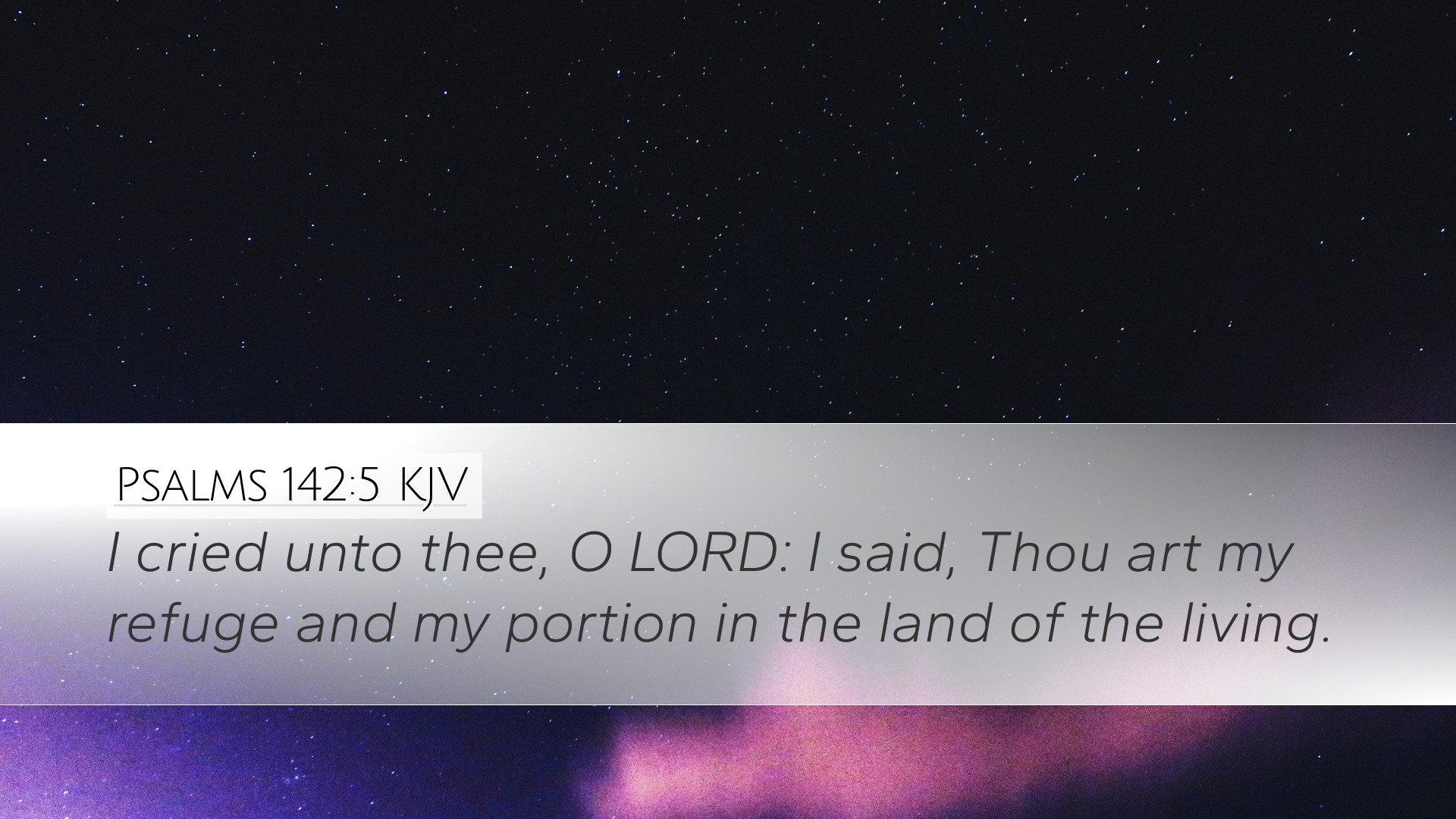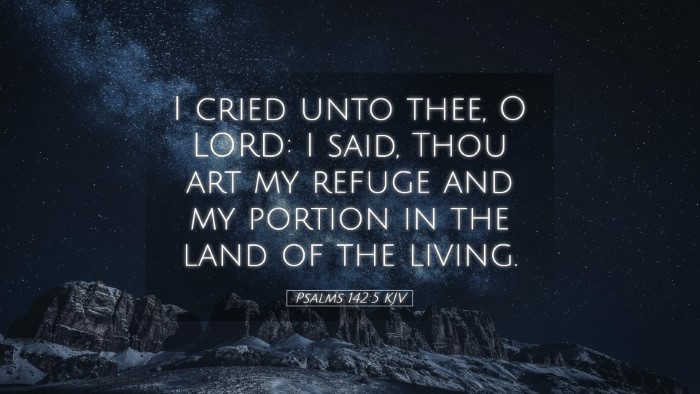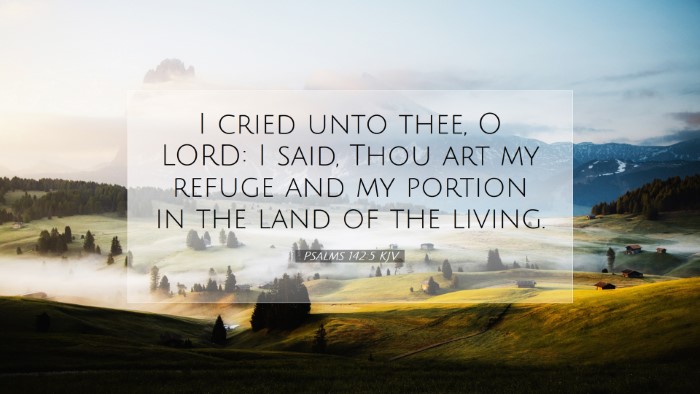Psalms 142:5 - A Deep Reflection
Verse Insight: "I cried unto thee, O Lord: I said, Thou art my refuge and my portion in the land of the living."
Context and Background
The Psalmist, traditionally attributed to David, expresses a profound sense of desperation and reliance on God during a time of distress. This particular psalm is often categorized as a penitential psalm, where the author, facing persecution and isolation, turns to God as his source of hope and refuge.
Historical Context: David composed many of the Psalms while fleeing from Saul or during his time in the wilderness. This psalm reflects a moment of deep anguish when he felt completely abandoned and oppressed. The cry for help signifies both his physical and spiritual need.
Thematic Analysis
This passage conveys several vital themes pertinent to the life of faith:
- Desperation and Dependence: David's plea highlights a universal human condition—moments of utter helplessness where we must rely solely on God's mercy.
- God as Refuge: The metaphor of God being a "refuge" signifies a place of safety and protection. It is a calling to trust in His sovereignty amidst chaos.
- Your Portion: Claiming God as "my portion" speaks to the deep, personal relationship the believer has with God, affirming that regardless of earthly possessions, God Himself is enough.
Commentary Insights
Commentators have elaborated rich insights into this verse, offering varied theological reflections:
Matthew Henry
Henry notes that this psalm serves as a heartfelt acknowledgment of the Lord's deliverance. He emphasizes the significance of crying out to God and identifying Him as the only true hope in times of trouble. He remarks that such recognition of God's role as a refuge should prompt believers to seek Him earnestly, particularly when external circumstances appear bleak.
Albert Barnes
Barnes brings attention to the phrase "land of the living", suggesting a dual implication—both the present earthly existence and an acknowledgment of life beyond. He argues that the psalm's plea illustrates a thoughtful reflection on how God's support transcends mortal struggles, as believers are reassured of His constant presence here and in the afterlife.
Adam Clarke
Clarke amplifies the personal aspect of this verse, affirming that it is not a collective lament but an individual expression of faith. He underscores the importance of recognizing God as one’s portion, asserting that true contentment arises from an understanding that all that we require is found in God alone.
Theological Implications
This psalm invites pastors and theologians to explore the deeper theological truths embedded in the nature of God as our refuge:
- The Nature of God: The title of God as a refuge calls for a deeper understanding of His attributes—His faithfulness, trustworthiness, and presence in trials.
- Personal Relationship: It urges believers to cultivate a personal relationship with God, recognizing Him not merely as a distant deity but as an intimate companion through life’s adversities.
- The Sufferer’s Perspective: The psalm exemplifies how believers can honestly express their struggles to God without fear of retribution. This can be a critical teaching point in pastoral care and counseling.
Practical Applications
For pastors, students, and theologians, this verse offers various practical insights:
- Encouragement in Adversity: It serves as a reminder to leaders to encourage their congregations that God is a refuge in difficult times.
- Prayer-Life Enrichment: The psalmist’s candidness in prayer encourages deeper, more authentic communication with God among believers.
- Teaching on Refuge: Sermons can focus on how God’s presence provides peace and assurance, even when circumstances point to despair.
Conclusion
Psalms 142:5 encapsulates a profound plea that resonates with anyone who has faced despair. The collective insights from Matthew Henry, Albert Barnes, and Adam Clarke deepen our understanding of this text. As it calls readers to recognize God as refuge and portion, it encourages an intimate relationship with Him, prompting us to approach Him with our vulnerabilities, affirming that He is, indeed, our ultimate source of hope and peace.


